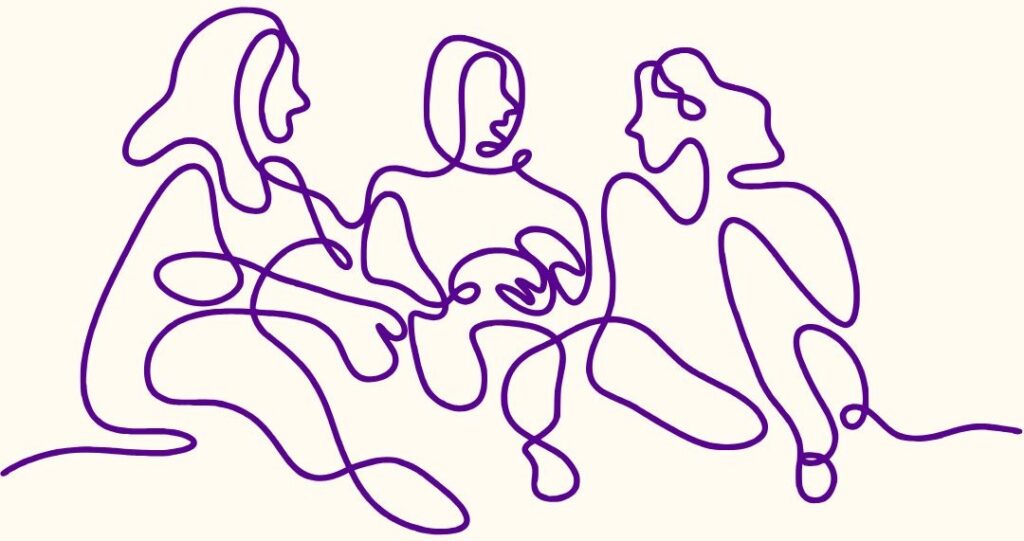Just as Jesus never said,
"Blessed are you when you're single,"
he never said, "Blessed are the marrieds."
Yet the Church—in word and action—behaves as if he did.
You are here because:
- You just heard the term “marriage normativity” or “singlism” and you are curious what that means
- You are a pastor and want to lead a single-friendly church
- You are a single woman looking to articulate your frustrations and find solidarity in the Church
- You are learning!
What you will find here:
- Definitions of singleness and a marriage normativity
- First person accounts of women hurt and offended by harmful preaching
- An evaluation process to gauge the values of marriage normativity in your church and in your preaching
- Statistics on the importance of single women to the church
- Theological reasons for preaching an inclusive view of single women
- An exegesis of five Scripture passages which produce shame and insecurity in single women
- The article which started it all
- Prayers for situations unique to the single experience
- Lots of links to resources and inspiration
Let’s start a conversation! Use the Contact Form or find me on Instagram or Substack!
a note before you get started…
Of course we pastors don’t want to be known as leaders who intentionally harm single women; however, I believe the twin sins of marriage normativity and singlism do a lot more damage than we are aware. This website–cheekily named after the Beyoncé song–is a launching pad for the information I’ve gleaned from my doctoral research. That’s right, I’m literally an expert on singleness. I am an ordained pastor and single woman and not only do I have first-hand experience of how the Church harms women by insisting that marriage is normal and expected, but I counsel many women through the shame caused by marriage normativity.

As you will discover on this site, it is the use of sermon illustrations, music, liturgies, and Biblical interpretation and imagery which stereotype and discriminate single people—in all the ways they are single—that causes harm and has no place in God’s Church. Obviously, there is a time and place to speak on marriage, to pray for healthy partnerships, provide support for the unsingles in a congregation, and hold accountable those who break marriage covenants. But single-friendly churches do not repeatedly defend a social construct which promotes or defends marriage as “normal” or expected. And I know that there are people who love when their pastor talk about marriage, this project isn’t about that minority. This is for the majority—single and unsingle—who can’t connect with this message.
As you begin to learn, let me name a couple of disclaimers. First, “single” is a wide term which affects all genders, sexes, sexualities, races, population density, housing and income, and so much more. So why am I focusing on only single women? Initially I started with ALL single people, but quickly found out that (1) there are twice as many single women than men in the church, and (2) single men weren’t willing to talk to me about their experience. The single ladies, though, lined up at the door.
Secondly, even in narrowing my work to just single women—unpartnered (seasonally or purposefully), divorced, separated, widowed, and attending church without a spouse or partner—there are many other demographics which intersect with singleness. I chose to start in my context: white, Protestant, cisgender, straight women. It is my sincere prayer that someday this work is expanded to others so all women will hear their worth proclaimed from the pulpit and the shame cycle is reversed to blessings.
Third, not all categories of singleness are the same, either. For example, a 30-year-old who has never been married views relationships differently than an 80-year-old widow or a twice-divorced 60-year-old. Just as I have had to limit my field of research to more-familiar demographics, I have had to make some generalizations based on what every category of singleness has in common: the pain of marriage normativity. It hurts when the pastor tells the congregation marriage is an expectation for all believers, yet here I am without a wedding ring. (And it is almost never outright taught; marriage normativity is subtle, pervasive, and dangerous because no one talks about it.)
So, if the Church doesn’t know this problem exists, how can it understand the scope to which it extends? How do we heal?
By choosing to hear single women and know their story, pastors can conduit the Holy Spirit and say aloud what the Spirit whispers: single women have worth. To God, certainly, but also to the Church; known and needed—not for a relationship status but because they belong to God. Echoing this message in word and deed, pastors can lead the way, weeding out marriage normativity so the whole Church will join Jesus in saying, “Blessed are the single ladies.”
Lastly, this work is my own (check out that copyright!) Though both agree with me and are working to do better, my work with BATSL is not a reflection of the congregation I serve or the denomination in which I hold ordained office. When work is not my own, I give attribution to the primary source. All I ask is that if you use my stuff, you’ll give me credit for it, too.

Blessed Are the Single Ladies © Copyright 2025. All rights reserved.
Contact | Insta | YouTube | Substack | Spotify | Privacy Policy
